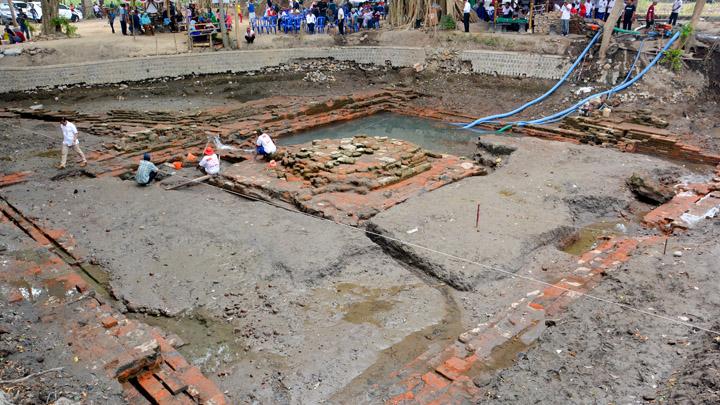
TEMPO.CO, Jakarta - Yulin Sitindage occasionally leaves her job renting out a tuna fishing boat to local fishermen so she can act as guide for tourists. She usually takes guests to a mangrove ecotourism site near her village of Pintu Kota, North Sulawesi.
A trail 200 meters long snaking through the mangrove site has been built by locals. Tourists can traipse around the site located near the beach and stop by at one of the small gazebos to take photographs. They can also join in mangrove planting activities. "We ask for a small donation from guests who want to plant trees," said 33yearold Yulin.
Apart from walking through the mangrove, Yulin said tourists can also enjoy the underwater beauty of Lembeh Strait. But to dive or snorkel, visitors have to book equipment beforehand as it is kept at a nearby local marine and fishery office. "Several villagers have been trained to take guests snorkeling and diving, but guests have to make a request in advance," Yulin said.
There are no hotels around the Pintu Kota district, but there is one homestay run by a villager.
Yulin is the secretary of the Coastal Resources Management Group (KPSDP), a 10member organization formed by the International Fund for Agricultural Development (IFAD) through its program, the Coastal Communities Development Project (CCDP).
Before the program, the local people never ever thought that ecotourism could be an option. With her group, Yulin obtained training on marine ecosystems, mangrove planting and how to host visitors. The training sessions, lasting several days each, were held at Bitung's marine and fishery office.
Today, 100 visitors come to the area every day during peak season and holidays. On regular days, they usually have no more than 40 to 50 visitors. The group can earn around Rp500,000 per day during peak season, said Yulin.
The income is divided between the members and is used to maintain the site. Every three months, each member gets around Rp1 million. "I’m grateful for the extra income," she said.
Nevertheless, Yulin is aware that getting more visitors can also threaten the ecosystem of the beach and its environs. Two Pintu Kota residents are assigned to supervise the ecotourism site each day and to keep it clean. The group has also put up signs to remind people not to litter nor vandalize the area.
Yulin hopes the group can continue improving their site and upgrading their service to attract more visitors. "I’m hoping we can get more funding to build infrastructure. We need more gazebos because it gets crowded during peak season," she said.
THE Coastal Communities Development Project was initiated in 2012 by IFAD in cooperation with the governments of Indonesia and Spain. Ronald Hartman, IFAD Indonesia’s country director, said the idea came from the Indonesian government because they realized that coastal communities are some of the most vulnerable in the country. Many communities live below the poverty line and are subject to the new threat of climate change.
Hartman noted that many coastal projects tend to be focused heavily on conservation. While conserving coral reefs is important, people living in conservation sites must also be able to generate livelihoods from their natural resources. "So what we wanted to look at was how we could get better integration between environmental management, social development and economic development," he said.
He emphasized that their projects are context specific, meaning a project that works in one area might not necessarily be replicable in another. Communities have to identify their own local resources for development. The assessment includes market access and livelihood activities. In some areas, as was the case in Bitung, the people proposed ecotourism managed by local communities. Frangky Runtunkahu, IFAD’s secretary for Bitung, said when CCDP first launched the program there in 2013, tourism was already present around Lembeh Strait. "But the Lembeh people were not involved in any way because [the activities] were operated by a resort in Bitung City," he said.
The majority of those living around the Lembeh Strait fish for their livelihood. Through the program, residents formed a group in each district, some for small scale fishery businesses and others for managing coastal resources, or the KPSDP.
Frangky said each group obtained training on coastal resources management, rehabilitation of damaged coastal environments, and conservation. So far, Bitung's CCDP has facilitated 17 groups in 17 different districts.
The KPSDP then submitted a proposal to improve the infrastructure of their site. "They planned to build mangrove trails and needed tools and equipment to support their ecotourism activities," he added.
With the funding, the community expanded the walking trails for visitors and obtained new equipment for diving and snorkeling. The site gained popularity through social media, said Frangky, with the majority of visitors hailing from nearby Manado and Bitung. (*)
Read more inspiring Outreach stories in Tempo English Weekly News Magazine























